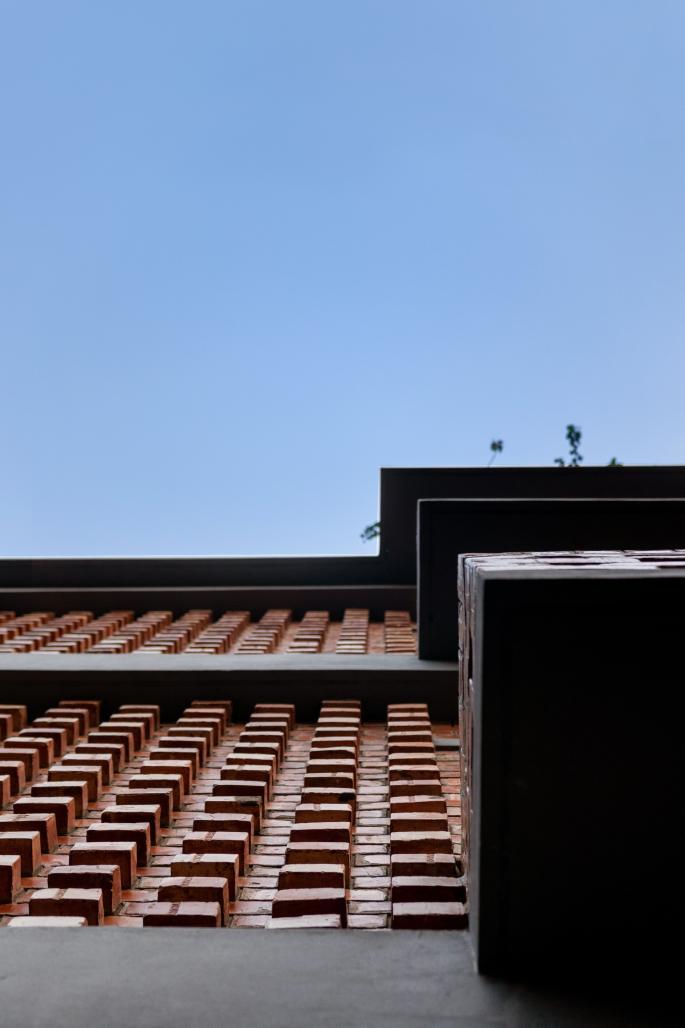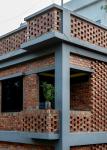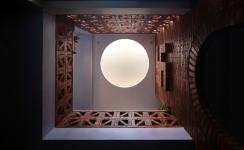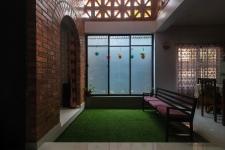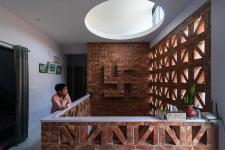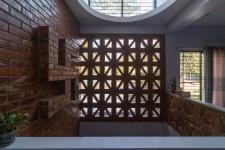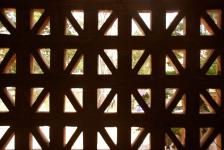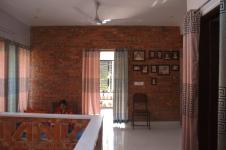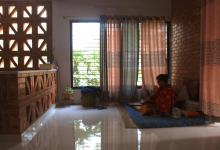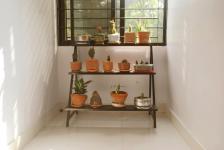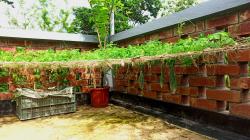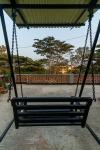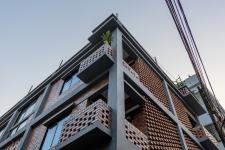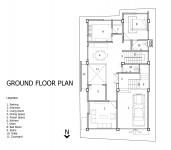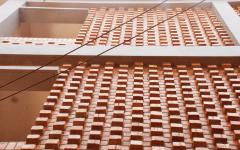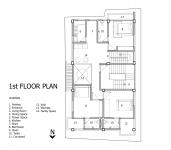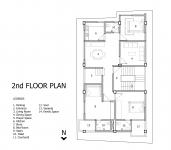From the Architect-
With the rise of urbanism, we are being often forced to trade our cultural norms and beliefs in exchange for functionality and productivity. In Bangladesh, this is a harsh reality in the metropolitan areas. In an over populated country like this, a middle class family can hardly afford the space or the living standard for a joint family residence. Often they have to sacrifice their culture for a better ‘living standard’ more suitable for urban life.
Dr. Shyamjoy Das & Mrs. Suprobha Sarker however wanted to give their next generation a little touch of the traditional living style; where a family lives together, bonds through the social & religious rituals, and learns about life from the older generation; while also have their own privacy and personal space necessary for their individual works.
I took inspiration from their house at their village where a central courtyard holds and connects the residential units. In the north side of the courtyard there is a family temple by which there is a tulsi plant. As in Hindu culture, tulsi plant is considered as a sacred plant and it’s a common practice to light a lamp near it every evening; the plant and the temple guides the functions of the courtyard. The courtyard is used for not only household/ agricultural work, but also it’s a place for social and religious gathering. In the urban areas, however, due to the lack of spaces, this culture is slowly going out of practice. In this project, we intended to bring back some of the characters of this courtyard and with that some of the activities the court holds.
To encourage the family communicative learning, the central courtyard is designed to connect all the common functions and the circulation spaces both horizontally & vertically. On ground floor, the courtyard is surrounded by the prayer space/ temple on the north, a little gardening space on the east, the dining zone on the south and finally the entrance and stair on the west. On 1st floor, the void space is surrounded by the family living on the south and the circulation space on the west, connecting the whole duplex unit. There are tulsi plants in the gardening zone with scope for some other plants.
For family programs or any religious or cultural events (for example, kirton, wedding rituals or music evenings) the courtyard space can be extended with the dining zone and 1st floor family living can act as the audience zone. To keep the construction cost on a minimum level, the building is done with brick masonry with reinforced concrete as structural materials. To reduce the energy usage, we tried to maximize the usage of the natural lighting and ventilation system. There is also a low cost roof gardening system that can be easily monitored and taken care of. We hope this project will help the users to build better communications with both society and nature throughout the generations.
2019
2020
Project Type- Residential Architecture
Name- Nayantara
Type- 3 storied residence
Architect- Jishnu Kumar Das
Consultant- Nirmanik Architects
Location- Subidbazar, Sylhet, Bangladesh
Client- Dr. Shyamjoy Das & Mrs. Suprobha Sarker
Area- 1300 sft (121 sqm)
State – Completed
Time- 2019-20
Architect: Jishnu Kumar Das
Structural Engineer : Humayun Khan
